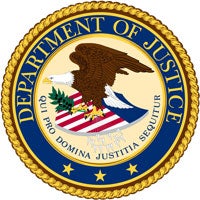At this year’s annual Harvard Law School Clinical Forum, Scott Glick, Deputy Chief of Counterterrorism in the National Security Division of the US Department of Justice, talked to students about a unique externship program in which they can work with the department’s counterterrorism prosecutors on cases of critical national importance.
Among the hundreds of students who turned out for the Clinical Forum, which presents rising 2L and 3L students with information about the many clinical opportunities at HLS, scores talked to Glick and to Miriam Glaser ’09, who is currently participating in the counterterrorism program. The program, Glick told students, “presents us with a core group of very bright students who provide research and writing assistance we really need. It’s a win-win. We don’t have unlimited resources at DOJ. And students in programs like this one get to see what it’s like to practice law for the government.”
Added Glaser, “It’s a chance to work with practitioners who really know the subject. Law school can be very theoretical, so this is a good chance to really get into the work.” And, she added, “counterterrorism is inherently interesting work.”
DOJ’s counterterrorism division is responsible for the design, implementation and support of law enforcement efforts to combat international and domestic terrorism, said Glick, who has been a prosecutor with the department since 1985. Students, under the supervision of Professors Philip Heymann and David Rosenberg, work from the HLS campus assisting counterterrorism lawyers in Washington, D.C., with legal research and writing projects. Their work ranges from researching statutes, working on evidentiary issues, assisting in discovery, factual research, and drafting jury instructions. “Students can be assigned to any number of cases that are high-profile, complex counterterrorism prosecutions taking place right now,” Glick said.
The program is administered by the HLS Office of Clinical and Pro Bono Programs (http://www.law.harvard.edu/academics/clinical/). Five to six HLS students are chosen each year by Rosenberg and Glick, and spend fall and spring semesters with the program. In case of emergency needs at DOJ, students may be asked to accept a research assignment during the Winter Term, but only if the work would not conflict with their Winter Term course obligations. A summer program run by the counterterrorism division of DOJ is open to students from other schools as well as Harvard, but the academic-year program is exclusively for HLS students. They earn up to two clinical credits over the year, depending on how many hours they work per week, and may work on a single case or a project spanning several cases. Given the nature of the work, students are required to sign confidentiality agreements in which they state they will not disclose information about what they handle.
Deadline for applications for the counterterrorism program for the ’09-’10 academic year is June 1. Applicants must be U.S. citizens, and they must have taken (or be enrolled during the program in) one or more of the following courses: criminal law, criminal procedure, constitutional law, or evidence. Interested students should contact Kim Peterson, Professor Rosenberg’s assistant, before that deadline. Applications should include the student’s resume and transcript. Professor Rosenberg will work with Glick to select the students, who then will be subjected to an in-depth background check in order to receive the required security clearance. In September, after the group is selected, Glick will travel to HLS to hold an orientation session.
The Clinical Forum this year was the largest ever, with most of HLS’s large slate of clinics represented by clinical professors, instructors, and current students, including the Criminal Justice Institute, the Cyberlaw Clinic at the Berkman Center for Internet & Society, the Child Advocacy Program, the Environmental Law and Policy Clinic, the Government Lawyer Clinic, the Harvard Legal Aid Bureau, the Harvard International Human Rights Clinic, Making Rights Real: The Ghana Project, the Negotiation and Mediation Clinic, and a number of programs from the WilmerHale Legal Services Center.
“We were really happy with the huge turnout and the tremendous level of interest in clinical programs,” said Lisa Dealy, assistant dean for the Office of Clinical and Pro Bono Programs. “This was the widest variety ever represented at a clinical fair.”
